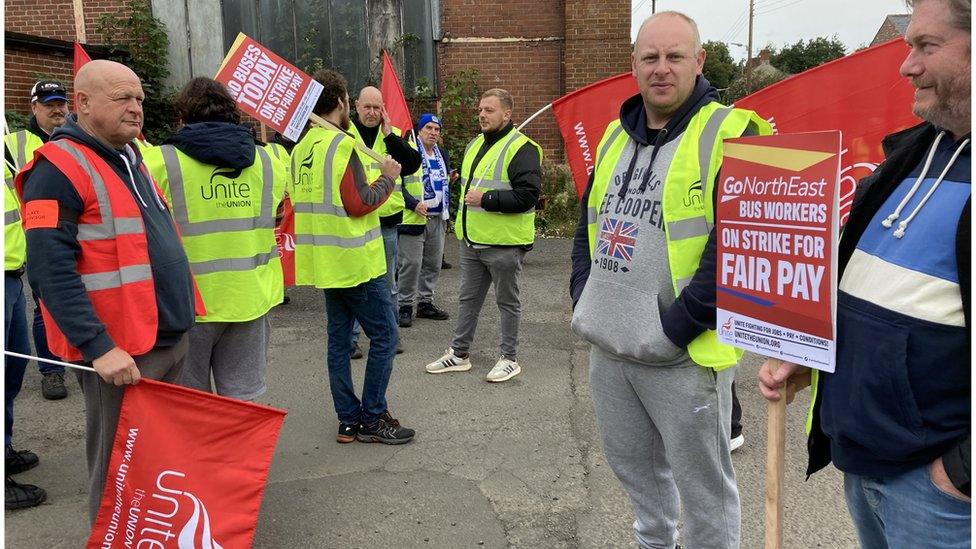Go North East bus strike: How long will disruption last?
- Published
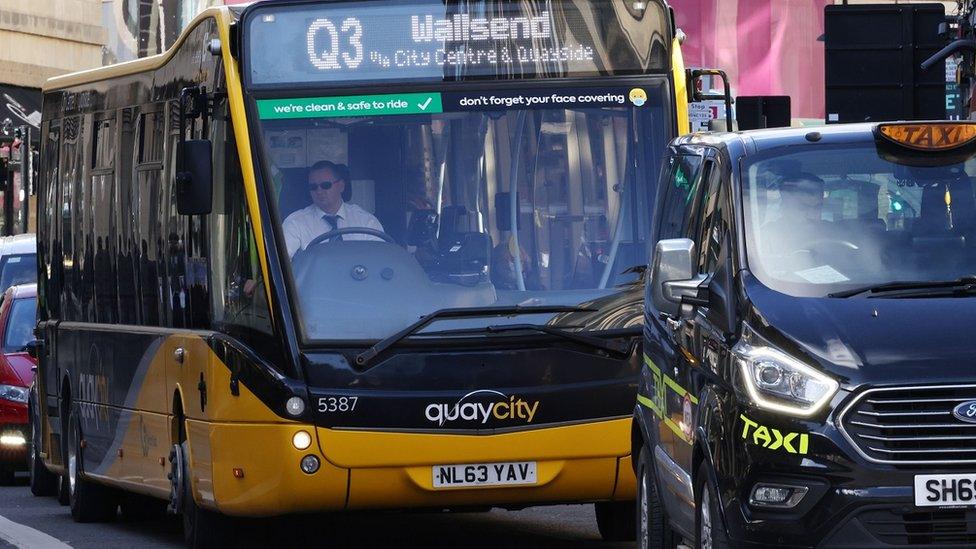
Go North East's services run across the region, but they have been brought to a standstill by the dispute
Bus services across the North East are being hit again, as the latest strike by staff at one of the region's major firms brings services to a halt. Why are they taking action and how long will disruption last?
Which services are affected?
Almost all Go North East's services across Tyneside, Northumberland, County Durham and Teesside are cancelled until further notice after staff began a walkout on Saturday.
It is understood some school services may operate for pupils, as they have during industrial action earlier in October.
The two previous walkouts both lasted for one week, but this latest round of industrial action is being taken on a "continuous" basis. The union says it has no end date.
As one of the main bus operators in the area, Go North East has a fleet of almost 700 buses and coaches, and has stated about 175,000 people typically board its services each day.
About 1,300 staff, including drivers, engineers, administration and clerical staff and technology support staff, across all six depots - at Consett, Hexham, Sunderland, Percy Main, Gateshead and Washington - are taking part in the strike.
Services by other bus firms, such as Arriva and Stagecoach, are not affected.
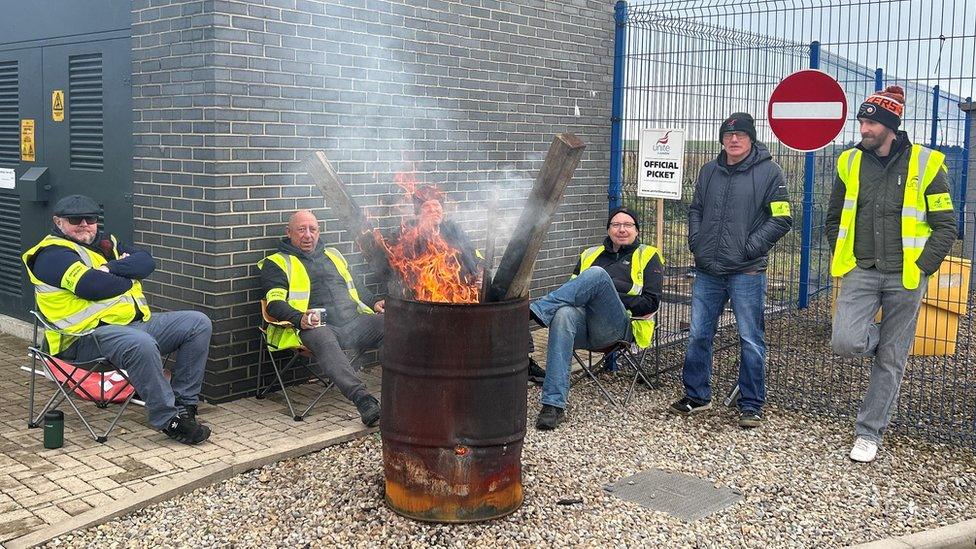
Staff are currently picketing at Go North East's Consett depot
Why are staff striking?
Workers' union Unite said its Go North East members were paid significantly less than people doing the same jobs at Go North West, both of which are part of the Go-Ahead Group.
Taking drivers as a comparison, Unite said Go North East drivers received £12.83 per hour compared to those at Go North West, who are paid £15.54 per hour.
That difference of £2.71 per hour totalled £105.69 less per week, the union said.
Union members rejected Go North East's latest pay offer on Friday 27 October, which proposed a 10.3% rise, taking hourly rates for drivers to £14.15.
An above-inflation rise next year was also put forward as part of that offer.
However, Unite said that would still mean a difference of £1.39 per hour now - meaning £54.21 less per week for Go North East drivers.
It has been calling for a 13% pay rise, which it says would bring the regions closer together -although pay would still not match their counterparts in Go North West.
Striking workers are being given £70 each day by the union. to help support them during industrial action.
What is Go North East's position?
The bus company, which is the region's third-largest private employer behind Nissan and Virgin Money, said it was "incredibly disappointed" its latest pay proposal had been rejected.
It described it as a "landmark offer" that would have made its workers the highest-paid drivers in the North East, ahead of those at rival companies.
Annual pay for drivers working a standard week would have risen by almost £2,700, it said, adding drivers who chose to work overtime stood to gain more than £3,000 per year.
Go North East business director Ben Maxfield said: "Drivers wanted an above-inflation deal, no changes to conditions, and top-of-the-market rates.
"We responded to each and every one of those demands, which makes it hard to understand why the union would press ahead with 12 weeks of industrial action."
He insisted North West workers were paid more because "they are on different rostering arrangements and different conditions".
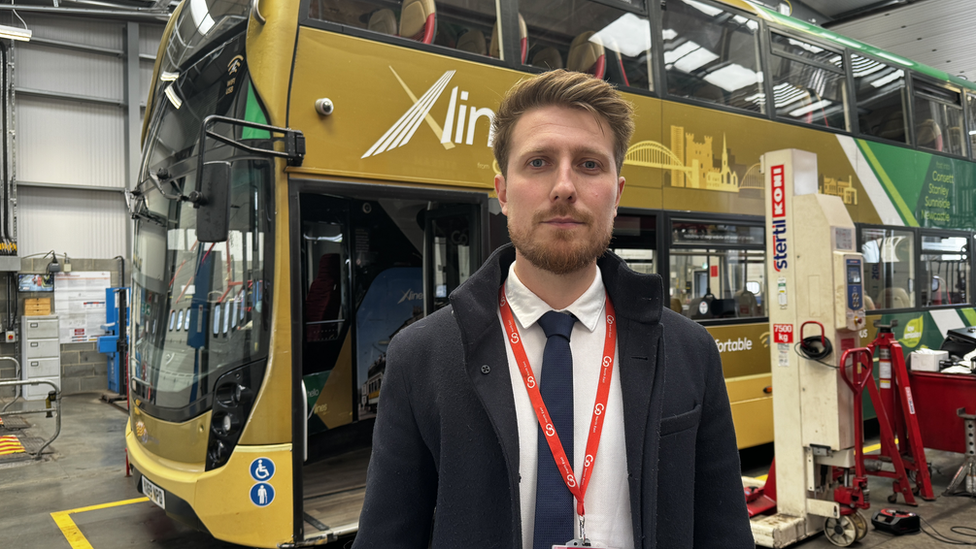
Go North East's Ben Maxfield said the firm had met all the union's requests
What does the union say?
Unite described Go North East's offer as "insulting" and said its members were "angry that they're being paid up to 20% less than their counterparts working for Go North West in Manchester, who do the exact same jobs working for the very same parent company".
In a statement released on Friday, it warned "many members are struggling to meet even a basic standard of living".
The union argued if they had accepted the offer, drivers would have been paid only 2p more per hour (78p per week) than the current highest-paid drivers in the region, at Arriva Northumbria, and pay would soon fall behind again once that firm concludes its own pay offer.
Unite's general secretary, Sharon Graham, accused Go North East of "betraying their workers", maintaining the bus firm was "responsible for the disruption caused to people living in the North East".
She added: "Their parent company is awash with cash, [but] they pay their workforce such low wages they are forcing them to use foodbanks to feed their families."
The ballot had a 93% turnout with 81% of those responding voting for the strike.
The union has refuted Go North East's suggestion that strike action could last 12 weeks, saying it could last longer.
Regional officer Mark Sanderson said drivers have legal protection against dismissal for up to three months from the start of continuous action.
How have passengers reacted?
There has been a mix of reactions among people the BBC has spoken to, with some people saying they would struggle to get to work or hospital appointments and were unable to pay for taxis.
Daniel Murray, who travels from Consett to Newcastle and Durham by bus, said he supported the strikes because he thought Go North East's workers "don't get paid enough".
But others took a different view.
IT tutor Hannah Allenby, who uses a Go North East bus to travel from Bowburn to Houghton-le-Spring, warned it meant people "won't be able to leave the house for weeks - it is like a reconstruction of Covid".

Follow BBC North East & Cumbria on X (formerly Twitter), external, Facebook, external and Instagram, external. Send your story ideas to northeastandcumbria@bbc.co.uk, external.
- Published27 October 2023
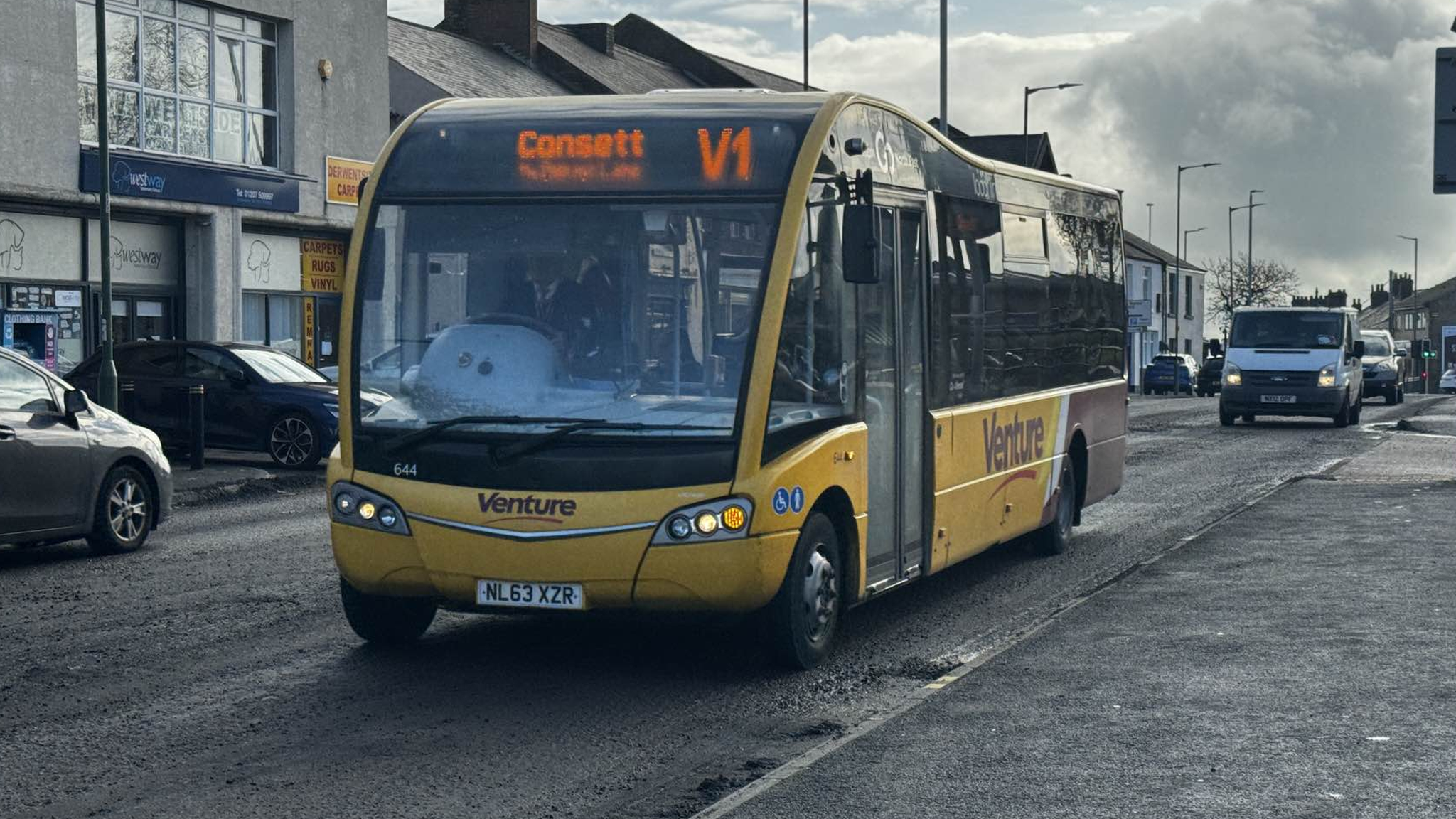
- Published13 October 2023
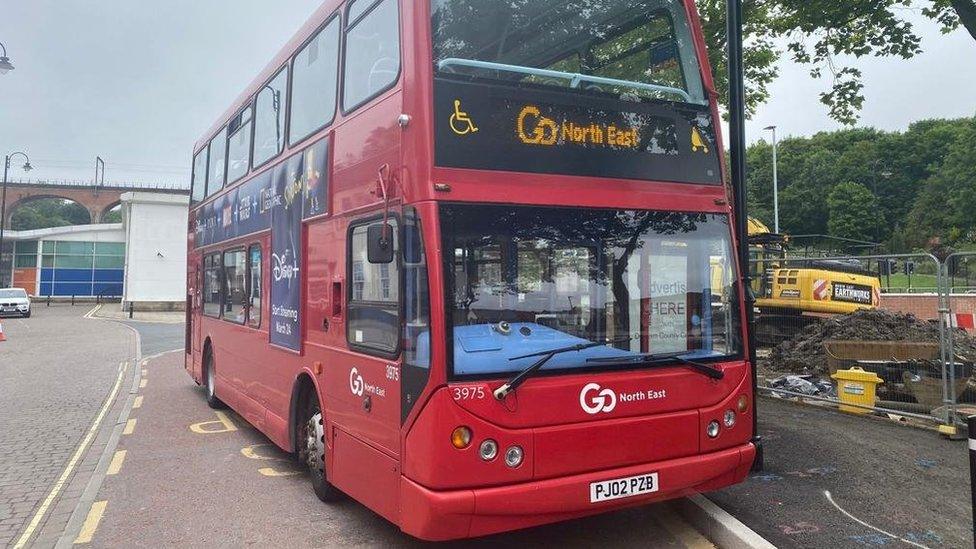
- Published30 September 2023
